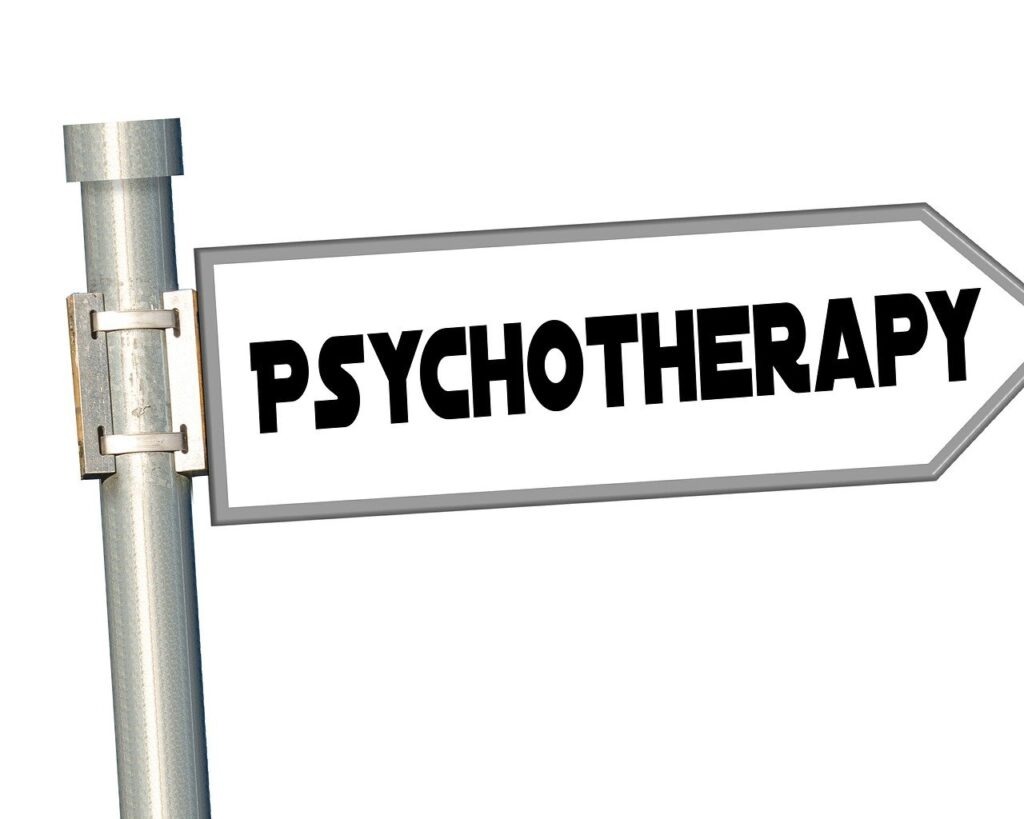081-4797-7173

Personality disorders are a class of mental health conditions characterized by strict and harmful patterns of thought, feeling, and behavior.
These patterns differ dramatically from the individual’s cultural norms, causing pain and damage in a variety of aspects of life such as relationships, jobs, and social interactions.
This article aims to provide information about various personality disorders, their characteristics, and treatment options.
Types of Personality Disorders
There are various forms of personality disorders, each with its unique traits and therapeutic approaches.
The Diagnostic and Statistical Manual of Mental Disorders, Fifth Edition (DSM-5) divides personality disorders into three categories: Cluster A (odd or eccentric), Cluster B (dramatic, emotional, or unpredictable), and Cluster C (anxious or terrified) the three categories. Each cluster has individual conditions with unique features and treatment methods.
1. Cluster A includes paranoid, schizoid, and schizotypal personality disorders.
- Paranoid personality disorder: This manifests as widespread distrust and suspicion of others. Individuals with this disorder are frequently prone to transferring blame and seeing the actions of others as intentional. They may be cautious, angry, and vulnerable to accusations of disloyalty or deception in interpersonal relationships, causing strain and social isolation. Their suspicion and obsession with potential threats can jeopardize their capacity to trust and communicate with others. This can lead to a chronic habit of interpersonal conflict and trouble building close relationships.
- Schizoid personality disorder: This is characterized by a disinterest in social relationships, emotional coldness, and isolation. Such people prefer solitary hobbies and have little interest in developing personal connections or engaging in social interactions. This might lead to feelings of emotional detachment and loneliness. Their emotional expression is often restricted, and they may appear aloof or unconcerned about praise or criticism. While they may have an extensive mental fantasy world, they frequently struggle to convey their thoughts and feelings to others. This might lead to a seeming lack of warmth and empathy. As a result, people may live solitary lives, seeking fulfillment in solitary hobbies or intellectual interests rather than interpersonal relationships.
- Schizotypal personality disorder: People with this disorder exhibit unusual behavior, strange ideas, and perceptual errors, which frequently lead to social isolation. Their speech may be confusing, diverting, or characterized by strange wording or unique patterns of speech. They may engage in odd behaviors or dress in unusual ways, which frequently represent their unique thoughts or perceptions. Despite their yearning for social connection, their oddness and perceived social incompetence can cause severe social anxiety and make it difficult to build strong connections. They may feel misunderstood or distanced from others, resulting in social isolation and rejection.
2. Cluster B includes antisocial, borderline, histrionic, and narcissistic personality disorders.
- Antisocial personality disorder: This is defined by a pattern of disregard and violation of the rights of others. Individuals with this condition may engage in illegal conduct, manipulation, and exploitation for selfish gain, as well as exhibit a lack of empathy. They frequently engage in deception, manipulation, and hostility. Their behavior is reckless, and they show little regret for destructive deeds. ASPD can result in legal issues, strained relationships, and trouble sustaining jobs.
- Borderline personality disorder: This is defined by instability in relationships, self-image, and emotions, which frequently leads to impulsive conduct and self-harm. Individuals with BPD engage in impulsive behaviors such as reckless driving, substance abuse, binge eating, or self-harm, which are commonly used to cope with overwhelming emotions. They suffer fast alterations in self-image, identity, and emotions, which result in feelings of emptiness, chronic loneliness, and an unstable sense of self.
- Histrionic personality disorder: This is characterized by over emotionality and attention-seeking conduct. They seek frequent reassurance and may exhibit seductive or provocative conduct. Their relationships may be shallow and explosive since they tend to judge others too quickly. Despite a yearning for attention, people with HPD may struggle with true intimacy. Their emotions may appear dramatic, and others’ perceptions readily sway them. HPD can disrupt work and relationships because people may prioritize attention-seeking over obligations.
- Narcissistic personality disorder: This is characterized by a chronic pattern of arrogant behavior, craving for admiration, and lack of empathy. They use people for personal benefit, frequently demonstrating arrogant and demeaning conduct. Despite their outward confidence, people with NPD have low self-esteem and are prone to feelings of great shame or embarrassment in the face of criticism or failure.
3. Cluster C includes personality disorders such as avoidant, dependent, and obsessive-compulsive.
- Avoidant personality disorder: This is characterized by social restraint, feelings of inadequacy, and intolerance to negative feedback. Individuals with AVPD have a tremendous fear of rejection and criticism, which causes them to avoid social contact, employment chances, and intimate relationships. They avoid seeking help or acceptance from others for fear of being humiliated or embarrassed.
- Dependent personality disorder: This is characterized by a persistent and excessive need to be cared for, which results in dependent and clingy conduct. They may struggle to make judgments without reassurance from others and will go to considerable lengths to gain support and approval. Their dread of being alone or abandoned may force them to tolerate abusive or toxic relationships. They frequently lack self-confidence and rely on others for emotional and physical support, making it difficult to express disagreement or assert themselves. This dependency can impact many parts of their lives, such as jobs, social interactions, and decision-making, because they may avoid taking initiative or responsibility on their own. They may also struggle to form or sustain relationships since others may see their overwhelming need for reassurance and support as demanding or stressful. Overall, DPD can have a major impact on an individual’s capacity to live independently and establish good interpersonal boundaries.
- Obsessive-compulsive personality disorder: This is defined by an obsession with orderliness, perfectionism, and control, which leads to stiffness and stubbornness. Individuals with OCPD may struggle with flexibility and freedom, frequently getting upset when presented with situations that depart from their carefully constructed or expected outcomes.
Treatment Approaches

Effective treatment for personality disorders requires an individualized approach that addresses each individual’s unique needs and challenges. While no single intervention is effective for all personality disorders, different types of therapy and pharmacological treatments have shown promise in managing symptoms and improving overall functioning.
1. Psychotherapy: The primary method of treatment is psychotherapy, particularly dialectical behavior therapy (DBT), cognitive-behavioral therapy (CBT), and psychodynamic therapy. These therapies seek to help people better understand their ideas, emotions, and actions, as well as develop coping skills and strengthen interpersonal connections.
- Therapy for paranoid personality disorder focuses on developing trust and dealing with incorrect thought patterns.
- The goal of schizoid personality disorder treatment is to help people interact with others and express their emotions.
- Therapy and social skills training are used to treat schizotypal personality disorder, which includes social anxiety and unusual behavior.
- Therapy for antisocial personality disorder focuses on addressing criminal behavior while also fostering empathy and positive social behavior.
- Borderline personality disorder treatment entails addressing disruptive emotions and creating appropriate coping strategies.
- Histrionic personality disorder treatment focuses on reducing attention-seeking behavior and increasing self-esteem.
- Therapy for avoidant personality disorder seeks to alleviate social anxiety and increase self-confidence.
- Treatment for dependent personality disorder includes promoting independence and assertiveness.
- Treatment for obsessive-compulsive personality disorder focuses on reducing perfectionism and increasing flexibility in thought and behavior.
2. Medication: While no specific medications have been approved to treat personality disorders, certain psychiatric medications, such as mood stabilizers for emotional instability, antidepressants for co-occurring depression, and antipsychotic medications for severe impulsivity or psychotic symptoms, may be used to relieve specific symptoms.
3. Group therapy and support groups: Participating in group therapy or support groups allows people with personality disorders to interact with others who have had similar experiences, obtain social support, and learn coping methods from their peers.
4. Skills training: Skills-based therapies, such as social skills training, emotion regulation techniques, and problem-solving strategies, can assist people with personality disorders in developing adaptive coping skills and improving their capacity to deal with social and interpersonal difficulties.
5. Family and couples therapy: Involving family members and significant others in the treatment process can assist people with personality disorders improve communication, settling problems, and strengthening their support systems.
It is crucial to emphasize that personality disorders can be difficult to cure because they are so common and long-lasting. Also, people with personality disorders may have concurrent mental health illnesses like depression, anxiety, or substance misuse, which complicates therapy. As a result, a comprehensive and tailored treatment approach is required, taking into account each person’s unique needs and limitations.
In conclusion, understanding the features and treatment techniques for personality disorders is critical for supporting effective treatments and improving the lives of those affected by these problems. Mental health experts can assist individuals in managing their symptoms, improving their quality of life, and developing meaningful connections with others by understanding the specific characteristics of each personality disorder and applying personalized treatment strategies. Continued research and therapeutic developments in the field of personality disorders are critical to improving treatment outcomes and fostering long-term healing for those affected.
0






